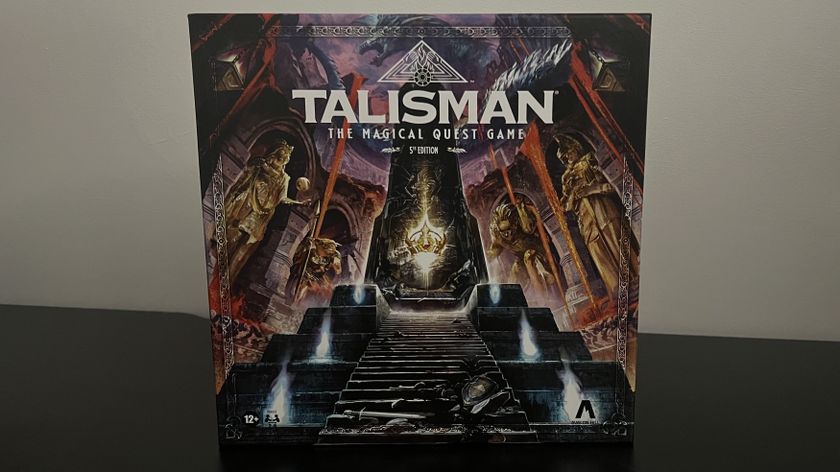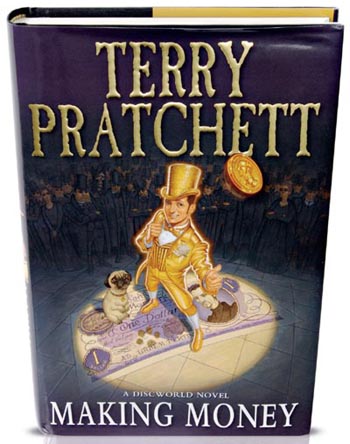Why you can trust 12DOVE
Author: Terry Pratchett
Publisher: Doubleday
352 pages • £18.99
ISBN: 978-0-38561-101-5
Rating:

To over-simplify matters in a breathtakingly cavalier fashion: there are two types of novel in the world. The first is the literary novel, the tome that self-consciously grapples with life’s intricacies. As for the rest? Well, we’re talking the mere stories: the sex and shopping potboilers, the airport thriller, sweaty erotica, the police procedural, humour, romance, spaceship sagas – in short, the fun stuff.
Except, as any student of L-space can tell you (that’s library space, by the way, Terry Pratchett’s idea that all libraries and bookstores are linked), books have a nasty habit of leaking information, so that you never quite know where it’ll turn up.
Nowhere are such L-effects more noticeable than when it comes to humorous novels. They’re supposed to entertain, but if the humorist is good enough, people find art and even wisdom sneaking out of their pages. Consider one of Terry Pratchett’s most obvious precursors, PG Wodehouse. The creator of Jeeves and Wooster was famously modest about his own achievements, describing it as “light writing”. And yet Wodehouse’s considerable wit, his warmth and obvious affection for his fellow travellers, no matter how stupidly they might behave, still linger.
That’s not to say the analogies between Wodehouse and Pratchett are anything like exact: where Wodehouse mostly tapped his fingers to the delightful song and dance of the human heart, Pratchett is more interested in how a society works, in the interaction between different groups and classes. To over-simplify again: Wodehouse was a micro-humorist, Pratchett is a macro-funnyman. And if that sounds dreadfully po-faced, don’t worry – both are united in owing a considerable debt to what Pratchett here dubs the “British Heritage Joke Foundation”.
As for macro subjects, they don’t get much bigger than the money supply. As Ankh-Morpork, once a monstrously Dickensian city, continues its modernisation, how should it establish a more up-to-date financial system? The city’s ruler, Vetinari, is in no doubt: appoint a conman to run the Royal Mint and the Royal Bank of Ankh-Morpork. The logic? When a moribund institution needs overhauling, conventional ideas simply won’t do.
Enter Moist Von Lipwig, last seen shaking up the mail service after narrowly avoiding execution in Going Postal. Having got the mail service running smoothly, Lipwig is bored, bored, bored, to the extent that he’s taken up dangerous sports. The bank, however, is dangerous enough for several lifetimes, particularly because it’s largely owned by the venal Lavish family, who are selfi sh, cruel, greedy, snobbish and don’t like Lipwig one little bit.
The usual controlled mayhem then unfolds, as Pratchett constructs a gloriously improbable plot involving, variously, Mr Fusspot the dog as the bank’s chairman, a golem called Gladys that’s taken on feminine characteristics, the chain-smoking Adora Belle’s machinations, a computer that models Ankh-Morpork’s entire economy and the ambiguous Mr Bent, the bank’s chief cashier.
As the heritage jokes are twisted into improbable new shapes, it is, of course, fantastic. Even if the finale is utterly outrageous and Pratchett is perhaps getting just a little too fond of Vetinari, humanising the Patrician to the point where it’s increasingly difficult to imagine him making Machiavellian decisions.
Despite such niggles, L-space just got a jolt of warmth and mirth mixed with – because Pratchett is both pedagogue and entertainer – some discourse on how the banking system works, especially the similarity between paper currency and stamps. How many other novelists could manage that?
Jonathan Wright
SFX Magazine is the world's number one sci-fi, fantasy, and horror magazine published by Future PLC. Established in 1995, SFX Magazine prides itself on writing for its fans, welcoming geeks, collectors, and aficionados into its readership for over 25 years. Covering films, TV shows, books, comics, games, merch, and more, SFX Magazine is published every month. If you love it, chances are we do too and you'll find it in SFX.



















